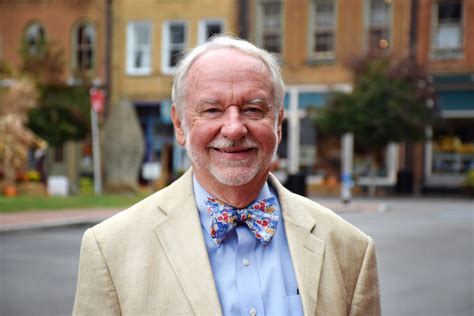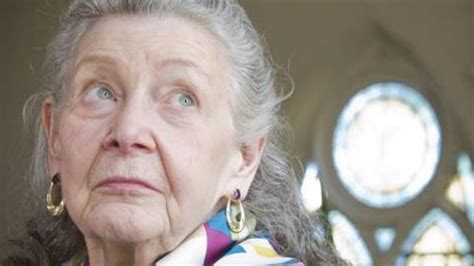A Quote by George Bernard Shaw
While we ourselves are the living graves of murdered animals, how can we expect any ideal living conditions on this earth?
Related Quotes
I believe that the best way to create good living conditions for any animal, whether it's a captive animal living in a zoo, a farm animal or a pet, is to base animal welfare programs on the core emotion systems in the brain. My theory is that the environment animals live in should activate their positive emotions as much as possible, and not activate their negative emotions any more than necessary. If we get the animal's emotions rights, we will have fewer problem behaviors... All animals and people have the same core emotion systems in the brain.
The earth is not a mere fragment of dead history, stratum upon stratum like the leaves of a book, to be studied by geologists and antiquaries chiefly, but living poetry like the leaves of a tree, which precede flowers and fruit ~ not a fossil earth, but a living earth; compared with whose great central life all animal and vegetable life is merely parasitic. Its throes will heave our exuviæ from their graves ... You may melt your metals and cast them into the most beautiful moulds you can; they will never excite me like the forms which this molten earth flows out into.
A man builds a house in England with the expectation of living in it and leaving it to his children; while we shed our houses in America as easily as a snail does his shell. We live a while in Boston, and then a while in New York, and then, perhaps, turn up at Cincinnati. Scarcely any body with us is living where they expect to live and die. The man that dies in the house he was born in is a wonder. There is something pleasant in the permanence and repose of the English family estate, which we, in America, know very little of.
I love animals; I've always loved animals. It's how I identified myself for so long, but I didn't know that in so many ways, I was living my life not in alignment with that. And once I learned about those ways I could be loving animals better, I made those changes, which made me happier and had me living a life that had me contributing.
If you are living for an ideal and driving yourself as hard as you can to be perfect - at your job or as a mother or as a perfect wife - you lose the natural, slow rythmn of life. There's a rushing, trying to attain the ideal; the slower pace of the beat of the earth, the state where you simply are, is forgotten





































